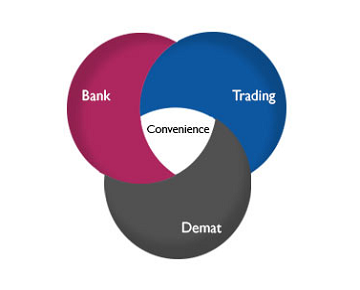IFPA Services
Transmission of Shares
How We Can Help You
Transmission of shares at times is hugely cumbersome and runs into many legal complications. We with our associated firm help our clients by providing services relating to entire range of transmission of shares. A few common issues that we come across frequently are as follows:
Mixing up transfer of shares with transmission of shares:
One of the widely- experienced problems is not to find out the difference between transfer and transmission of shares. The Companies Act clearly distinguishes transmission of shares from transfer of shares. While transfer of shares relates to a voluntary act of the shareholder, transmission is brought about by operation of law. Unlike transfer of shares, in case of transmission, shares are transferred without any consideration. The transmission takes place on the basis of will or an agreement.
Holding in various companies:
In case the deceased shareholder had holdings in different companies, the relevant documents must be sent to each of the companies along with the share certificates in order to effect transmission of shares. This needs constant follow-up with each of the companies.
Jointly-held securities:
Problems also arise if deceased was one of the joint holders. In that case the surviving holders must have a depository account and apply for transmission of shares following the due procedures.

Share transmission is the devolution of title of shares of a shareholder due to death, inheritance, bankruptcy, insolvency, lunacy, marriage or by any other lawful means other than transfer. On registration of the transmission of shares, the person becomes the shareholder of the company and is entitled to all rights as a shareholder.
Demat of Shares

Dematerialization (popularly ‘demat’) is the process of converting physical shares into electronic format. An investor who wants to dematerialize his shares needs to open a demat account with a Depository Participant (DP). Investor surrenders his physical shares and in turn gets electronic shares directly in his demat account. Under the current provision, dematerialization of promoter shareholding is mandatory while non-promoter investors have an option to hold securities either in physical or demat form.
How We Can Help You
Here are a few problems that a shareholder often faces. We help such problems and help investors to convert physical shares to demat.:
Dormant demat account:
Demat account of an investor may become dormant due to inactivity for a long time. This frequently happens with passive investors who adopt a ‘buy and forget’ approach. This may also happen with an investor who opens new demat account without transferring shares to it from old account. In such cases, the investor faces problems in trading, transfer and transmission of shares.
Lack of updated information:
An investor has changed address, but the details are correspondingly not updated with the depository participant or the company, resulting in a mismatch with the shareholder’s database. In this case, the investor may lose benefits such as dividends, bonus, split shares, rights issues etc.
Loss of demat details:
For some reasons, a shareholder may loss his demat details, resulting in complete lack of communication with the company and depository participant.
Why do you need a demat?
- A retail investor can hold shares in physical form, but cannot trade. For trading (buy or sell) of shares, an investor has to have a demat account.
- Demat is safe and convenient as it reduces risk of holding shares in physical form, reduces paperwork, ensures immediate transfer and eliminates bad deliveries.
- It eliminates transit losses relating to benefits such as dividends, bonuses, stock split, rights as these are automatically transferred into demat.
- Any update with depository gets automatically registered with all companies in which investor holds securities eliminating the need to correspond with each of them separately.
Unclaimed Dividends
How We Can Help You
Although the government has ensured unclaimed dividends, deposits, debentures, bonus, split shares etc to be in safe hands so that the investors can claim it even after a certain period, the number of the affected investors are no less. We provide a whole range of services to investors to recover their unclaimed dividends, bonuses, split shares etc. An investor may face such problems because of following reasons:
Outdated records:
Unclaimed Dividend largely exists due to incorrect or outdated details of a shareholder in company’s records. Non-intimation of change of address or other details to the respective company results in mismatch of investor’s database with various authorities.
Non-execution of transfer:
Shares purchased by an investor remain in the name of the seller due to non-execution of transfer in the name of the buyer. This happens when an investor holds physical shares.
Non-execution of transmission:
It happens when a legal heir or successor fails to ‘transmit’ shares in his name after the death of an investor in whose name shares or debentrues are actually held in company’s records, leading to unclaimed corporate benefits including dividends etc.

Unclaimed dividend is the declared dividend by a company which is not uncashed or claimed by the shareholders. The Companies Act of 2013 mandates that dividends not paid or claimed in 30 days are transferred to a separate bank account. An investor can claim his dividends from this account anytime in the next 7 years. After that, it goes to the Investor Education and Protection Fund (IEPF) which is managed by the Ministry of Corporate Affairs.
Property Claim Samadhan
We with our associated firms team backed by Industry seasoned professional having knowledge of entire spectrum of real estate industry helps you to recover your money stuck in property
We with our associated firms will be glad to assist you:
In case you are not able to get refund of your investment in real estate project which is either delayed or halted.
In case you are looking for dispute resolution or settlement with builder / developer / colonizer etc.
In case you are looking for filing suit for your real estate matters
In case you are looking for consultation in family property dispute resolution
In case of not getting possession or no penalty for delayed period

Brief of the remedy available under RERA – For your easy reference, some of the important points are as under:
- RERA has been implemented to ensure accountability, special authority and grievance redressal system in real estate Industry.
- One of the object for enactment of RERA Regulation, was to safeguard the interest of buyers.
- Any kind of grievance against the project, which is covered under RERA, can be filed before respective State RERA Authority.
- As per the RERA Regulation, the authority shall dispose off the grievance or complaint within 60 days of filing.
- If the authority takes more than 60 days, authority shall record the reasons to do so.
- RERA authority is very quick and hear the grievances.
- RERA authority has been given all power of a civil court.
Scope of Work – we would consult and complete the following work
- Review and analysis of the facts including agreements, and other details individually
- Aligning the issues with legal remedies as per RERA Act, rules and regulations.
- Drafting of petition and all other incidental documents.
- Filing of case before RERA authorities.
- Appearance before RERA authorities to attend all the hearings.
Debtor Recovery

Recovery of Debtors through The Insolvency and Bankruptcy Code
- IBC empowers all classes of creditors (secured and unsecured lenders, employees, trade creditors, regulatory authorities).
- Provides for immediate suspension of the BOD and promoters’ powers.
- Provides for an insolvency professional to take control.
- Offers a finite time for resolution process.
Key Features Insolvency Resolution
- The process may be initiated by either the debtor or the creditors.
- National Company Law Tribunal (NCLT) would deal with matters relating to corporate insolvency
Recovery of Unclaimed Mutual Funds
Hundreds of crores are lying unclaimed in the forms of unclaimed dividend and redemption amount of mutual funds. We provide service in redemption of Mutual Fund which remains unclaimed due to following reasons:-
- Mismatch of name / change of name
- Mismatch of signature
- Change of address
- Closure of bank account
- Death of mutual fund holder
Even if you donot have details of your mutual fund, but you remember the name of Mutual Funds houses where investment is made, we can assist in retrieval of information and recovery of those unclaimed mutual funds.
If mutual fund redemption amount or dividend amount remains unclaimed for 3 years, it will be considered as unclaimed and invested by Mutual Fund Houses in money market. And if it remains unclaimed for another 10 years, it is transferred in Senior Citizen Welfare Fund, from where normally it cannot be claimed after 25 years.

Recovery of Unclaimed Matured Insurance

Around Rs. 12,000/- crore is lying unclaimed in Life Insurance due to following reasons:-
- Loss of policy documents
- Death of policyholder
- Closure of bank account
- No claim even after maturity
- Premiums remaining unpaid
We help in recovery of following types of claims of life insurance:-
- Death Claims
- Survival benefits
- Maturity claim
- Premium refunds
If Insurance claims remains unclaimed for 10 years it is transferred to Senior Citizen Welfare Fund, from where normally it cannot be claimed after 25 years.
Recovery of Inoperative Bank Accounts
If saving or current account is not operated for 12 months it becomes inactive and if it is further not operated for another 12 months, it becomes inoperative. Thus we help in making account operative again and also claiming money from the accounts.
Further if there is death of accountholder, we help in transmission through legal process and claim of amount to legal heirs.
If account remains inoperative for 10 years, it becomes unclaimed and transferred to Senior Citizen Welfare Fund, from where normally it cannot be claimed after 25 years.

Recovery of Fixed Deposit

If bank deposit is not claimed for 10 years after it becomes due, it is considered as unclaimed. Thus we help in claim of amount from unclaimed deposits.
Further if there is death of accountholder, we help in transmission through legal process and claim of amount to legal heirs.
If amount due is not claimed for 10 years, it becomes unclaimed and transferred to Senior Citizen Welfare Fund, from where normally it cannot be claimed after 25 years.
Recovery of Provident Funds
Thousands of crores are lying unclaimed in the forms of unclaimed provident fund in across India.
We provide service to recover unclaimed Provident Fund which remains unclaimed due to following reasons:-
- Wrong Name / change of name
- Not having PF number
- Not having UAN/ Unactive UAN
- Incomplete KYC
- Incomplete Information seed by company
- Closure of bank account
- Death of Provident fund holder
- Company refused to sign and attest the claim



